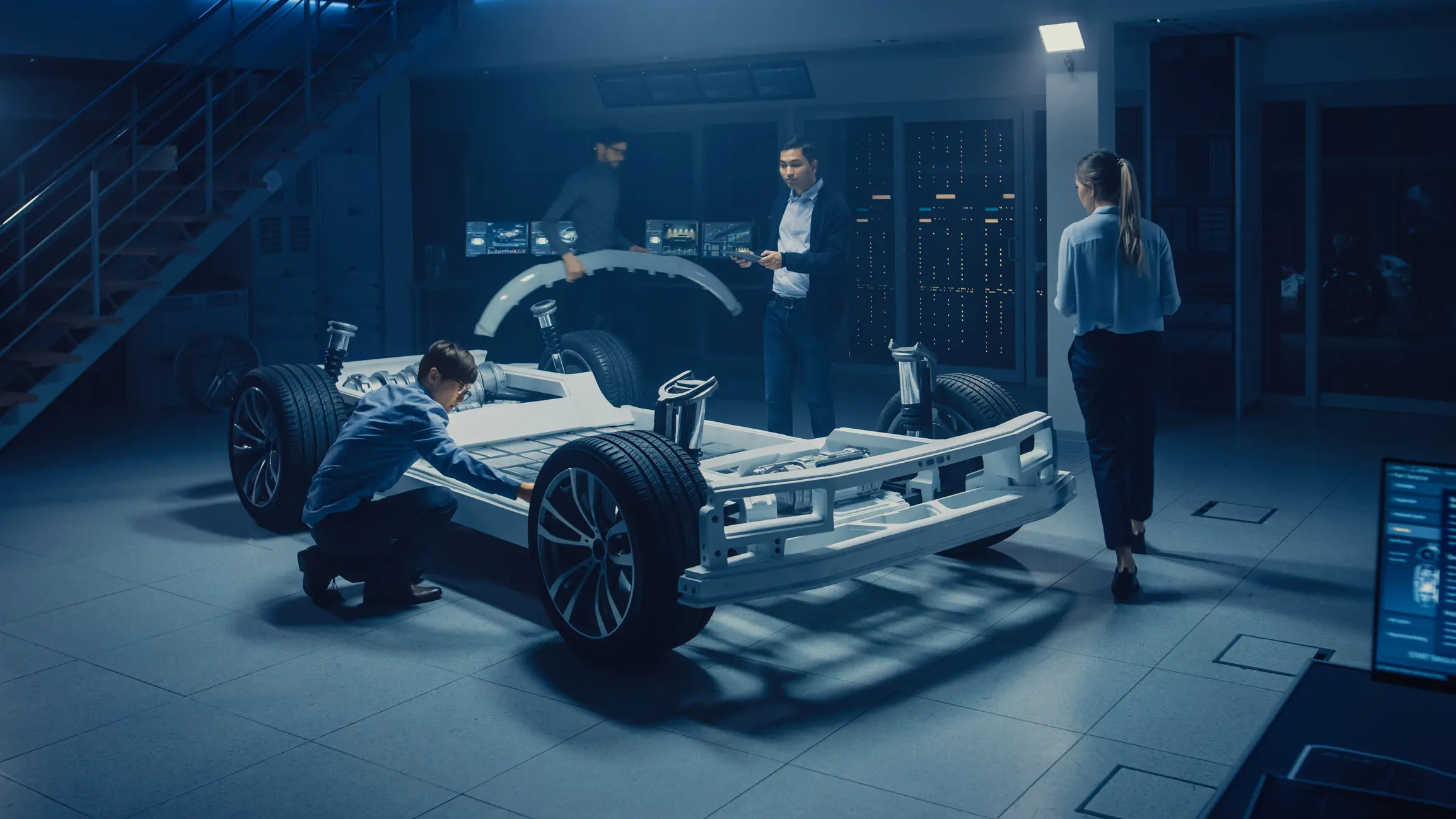
The demand for Electric Vehicles is revving up. Improved range capacity, a wider selection of products, and rising consumer environment demand for lower emission vehicles are setting the stage for increased production of these sought-after vehicles.
Recognizing this quickly rising market need, the industry has identified strategies to accelerate the electrification of new vehicles, investing billions of dollars in research and development. S&P Global Mobility forecasts U.S. electric vehicle sales could reach 40 percent of total passenger car sales by 2030.
These factors are the catalyst for an anticipated expansion of occupations that can drive the design and development of EVs into the future.
Did you know? Hybrid cars require 75 lbs of copper vs. 42 lbs. of copper in a traditional car.
A New Workforce
The labor trajectory supporting EV technologies is expansive and includes design, computer science and technology, power products production, and charging infrastructure. As the electrification of vehicles progresses these fields are anticipated to grow exponentially.
Engineers:
- Battery Engineers/Scientists: These professionals focus on developing and improving battery technologies. They work on enhancing energy density, charging times, and overall performance of EV batteries.
- Electric Vehicle Engineers: Specialized engineers are needed to design, develop, and test EVs. This includes professionals in mechanical, electrical, and automotive engineering.
- Power Electronics Engineers: EVs rely on sophisticated power electronics systems for efficient energy conversion. Power electronics engineers design and optimize components like inverters and converters.
Storage Systems:
- Energy Storage System Engineers: Beyond automotive applications, energy storage systems are vital for grid stabilization and renewable energy integration.
Infrastructure:
- Charging Infrastructure Specialists: With the rise of EVs, the need for an extensive and efficient charging infrastructure is critical. Specialists in planning, designing, and maintaining charging stations will be in demand.
Computer Science:
- Software Developers: As EVs become more connected and autonomous, software developers will play a crucial role in developing the necessary algorithms and systems for EVs.

Environmental & Regulatory:
- Environmental and Sustainability Experts: Professionals with a background in environmental science or sustainability can play a crucial role in ensuring the overall ecological impact of EVs is considered, from raw material extraction to end-of-life disposal.
- Regulatory and Compliance Experts: As the EV industry evolves, professionals who understand and navigate regulations and compliance standards specific to electric vehicles will be essential.
Maintenance:
- Electric Vehicle Technicians and Mechanics: Traditional automotive technicians will need to adapt their skills to work on EVs, which have different components and systems compared to traditional internal combustion engine vehicles.
Management & Marketing:
- Supply Chain and Logistics Specialists: Managing the supply chain for EV components, especially critical elements like batteries, requires expertise in sourcing, logistics, and inventory management.
- Data Analysts and AI Specialists: EVs generate large amounts of data, and professionals who can analyze this data for performance optimization, predictive maintenance, and other applications will be in demand.
- Sales and Marketing Specialists: As the market for EVs expands, there will be a need for individuals with expertise in selling and marketing these vehicles.
The electrification of vehicles is a multidisciplinary field, and professionals with skills in engineering, technology, environmental science, and business will find numerous opportunities in this growing industry.






